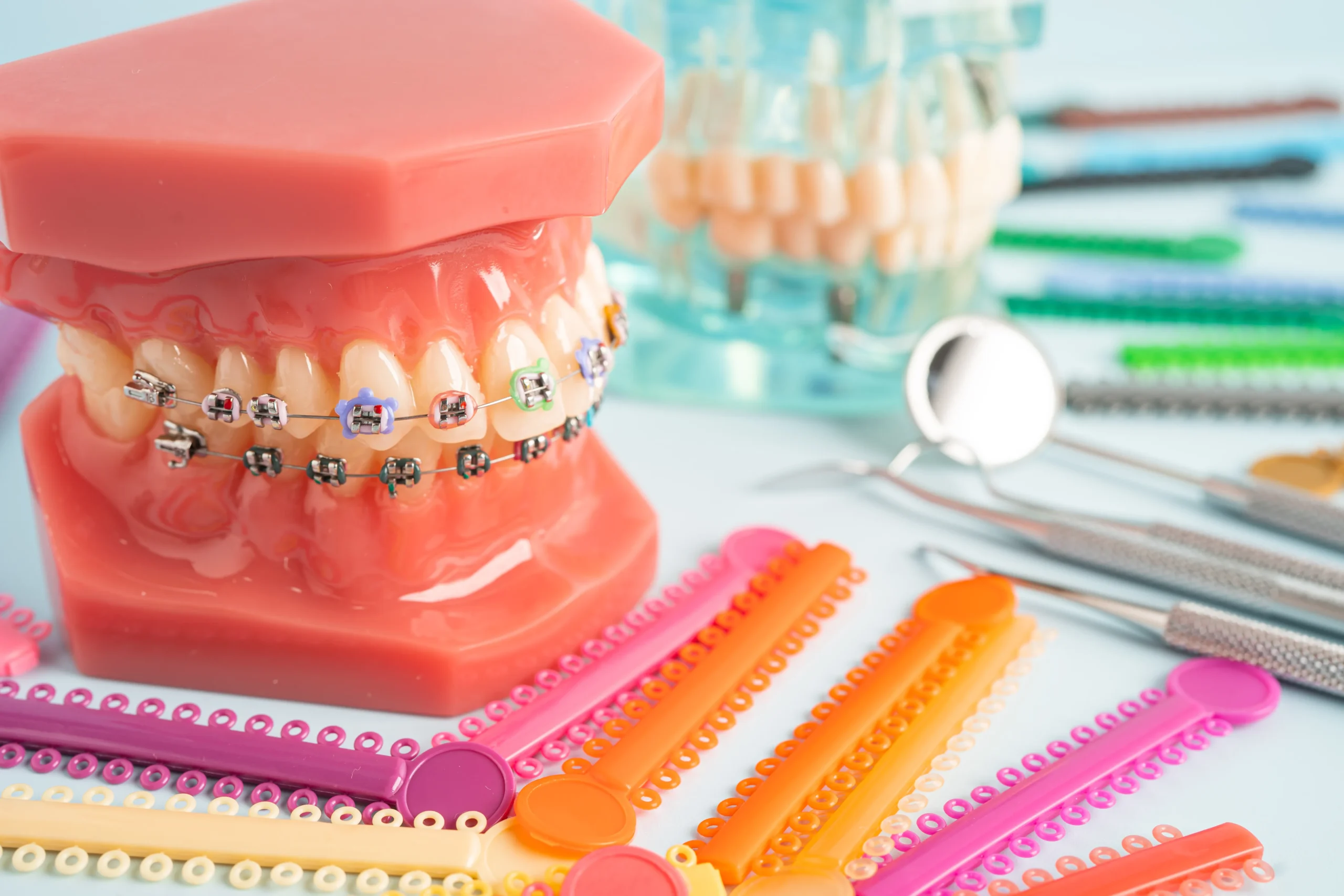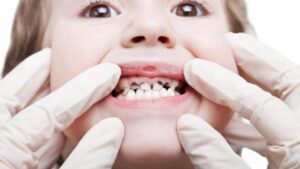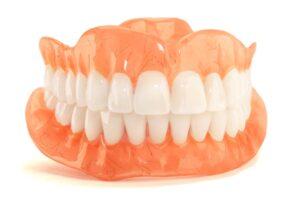Understanding the Journey with Braces
When folks ask, "Does getting braces hurt?" they are usually thinking about the overall experience from start to finish. At KP Prima Senawang, our klinik gigi team understands that this question might stem from worries about pain and discomfort. Let's break down what you can expect from start to finish, ensuring that you feel at ease with your decision to improve your smile.
Types of Braces Pain

Pain from Fitting, Tightening, and Removal of Wires and Brackets
When you first get your braces fitted at KP Prima Senawang, you might feel some discomfort as your mouth adjusts to the new hardware. This includes when wires and brackets are tightened to gradually shift your teeth into their ideal positions. Think of it as your teeth getting accustomed to wearing "new shoes." Just like those tight new shoes, it gets better with time. If the pain is too much, don’t worry – a quick chat with our klinik gigi can help you find relief.
Irritation from Wires and Brackets Rubbing Against Cheeks and Lips
Another common issue is the irritation caused by wires and brackets rubbing against the inside of your cheeks and lips. This can lead to small sores or cuts. Imagine having a tiny pebble in your shoe that keeps rubbing against your foot – that's similar to how this feels. But don’t fret! At KP Prima Senawang, we offer dental wax that you can apply over the irritating parts to provide a smooth surface and reduce friction.
Sore Gums and Mouth Sores Due to Metal Brackets
Your gums may also become sore when they come into contact with metal brackets. This soreness is quite like the mild inflammation you feel after flossing for the first time in a while. It’s important to keep your gums clean and healthy. Regular visits to our dental clinic for professional cleanings and check-ups can help monitor and manage this soreness. Remember, it’s all part of the journey to a beautiful smile!
Discomfort Due to Gentle Pressure on Teeth and Gums
Every time your braces are adjusted, you will feel a gentle pressure on your teeth and gums, which can be uncomfortable. Imagine pressing down hard on your fingernail – it’s a similar sensation. This pressure is necessary to move your teeth gradually and safely into the desired position. Over-the-counter pain relief medications can help manage this discomfort, and our team at KP Prima Senawang is always here to guide you through the process.
How Long Do Braces Hurt?
Getting braces can be a big step towards a beautiful smile, but it often comes with some discomfort in the beginning. If you’re considering orthodontic treatment at our dental clinic, KP Prima Senawang, you might be wondering how long this discomfort will last and what you can do to ease it. Here’s a simple guide to help you understand what to expect.
Initial Soreness: A Few Days to a Week
After getting your braces fitted at our klinik gigi, it's completely normal to experience some soreness. This initial discomfort generally lasts anywhere from a few days to a week. Think of it like breaking in a new pair of shoes; it might feel tight and a bit uncomfortable at first, but soon it starts to feel normal.
Tips to Ease Initial Soreness:
- Soft Foods: Stick to soft foods like mashed potatoes, smoothies, and soups.
- Over-the-Counter Pain Relievers: Paracetamol or ibuprofen can help relieve pain.
- Saltwater Rinse: Gargling with warm salt water can soothe your gums.
Getting Used to the Braces: 2 to 3 Weeks
Apart from soreness, having braces can feel strange. It usually takes 2 to 3 weeks to get completely adjusted to having this new apparatus in your mouth. During this period, you might feel a bit awkward while eating or speaking, which is perfectly normal.
Adaptation Tips:
- Wax: Orthodontic wax can be applied to areas causing irritation.
- Practice: Reading aloud can help you get used to speaking with braces.
Specific Discomfort: Bottom Braces
Bottom braces often cause additional discomfort due to their close proximity to your tongue and the movement of your lower jaw. This can lead to tongue irritation and may extend the period of getting used to braces.
Relieving Bottom Braces Discomfort:
- Hydrate: Drinking plenty of water can reduce mouth dryness, which may amplify irritation.
- Tongue Exercises: Rolling your tongue and practicing moving it around the braces can help you adapt more quickly.
Individual Variation: Pain Tolerance
Everyone's pain tolerance is different, so the adaptation period can vary. Some people might breeze through these stages with minimal discomfort, while others may take a bit longer. Don’t worry, at KP Prima Senawang, we're here to support you at every step.
Managing Orthodontic Discomfort
If you or your child have braces and are feeling a bit uncomfortable, don’t worry, you’re not alone. Managing discomfort during orthodontic treatment is crucial for maintaining a positive experience. Let's explore some easy, practical ways to handle this.
Over-the-Counter Painkillers
One of the most straightforward methods to manage pain from braces is to use over-the-counter (OTC) painkillers. These medications are readily available at most Malaysian pharmacies. Common options include:
- Ibuprofen (like Advil or Nurofen): This non-steroidal anti-inflammatory drug (NSAID) not only helps with pain but also reduces inflammation.
- Naproxen (like Aleve): Another NSAID that is effective for longer-lasting pain relief.
- Acetaminophen (like Panadol or Tylenol): While not an NSAID, this is still an excellent choice for pain relief, especially if you need to avoid anti-inflammatory drugs.
Always follow the dosage instructions on the packaging to ensure safe use. If you have any concerns, don’t hesitate to contact KP Prima Senawang. Our team is here to guide you!
Home Remedies
Some of the best remedies for orthodontic discomfort can be found right at home. These offer a natural, gentle way to relieve pain and make your orthodontic journey smoother.
- Saltwater Rinses: Mix a teaspoon of salt in a glass of warm water and swish it around your mouth. This simple solution can help reduce swelling and soreness.
- Ice Packs: Applying an ice pack to the outside of your cheek can numb the area and reduce inflammation.
- Cold Beverages and Soft Foods: Enjoying a cold drink or a soft diet can be soothing. Think of cold Malaysian desserts like cendol or ais kacang—they're not only tasty but can offer temporary pain relief.
- Dental Wax: Sometimes, braces can create rough spots in your mouth. Applying dental wax to these areas can provide a cushion, preventing further irritation.
- Numbing Medicine: Over-the-counter numbing gels can be dabbed on sore spots inside your mouth to temporarily ease the pain.
Oral Hygiene
Keeping up with good oral hygiene is even more important when you have braces. Here's how to adapt your routine to keep your mouth healthy and comfortable:
- Regular Brushing and Flossing: Braces create more nooks and crannies where food particles and plaque can hide. Brush after every meal with a soft-bristled toothbrush, and don’t forget to floss daily. This helps in preventing any inflammation in the gums.
- Mouthwash Use: Using a mouthwash can help reduce bacteria and inflammation. Opt for an alcohol-free version to avoid dryness.
- Adapting to Malaysian Dietary Habits: Malaysian cuisine is diverse and delicious, but some foods can be tricky with braces. Stick to softer foods and avoid anything too hard or sticky. Also, make sure to clean your braces thoroughly after enjoying meals rich in spices and flavors.
At KP Prima Senawang, we understand that managing orthodontic discomfort can be challenging. However, these tips can make the experience more bearable. If you ever have questions or concerns, feel free to contact us via WhatsApp or book an appointment. We’re committed to providing affordable, quality care to the Senawang community.
Types of Braces and Their Impact on Discomfort

When it comes to straightening teeth, many people in Senawang look for options that are effective and as comfortable as possible. At our klinik gigi, we offer a variety of braces to suit different needs and preferences. Let’s explore each type of brace and their impacts on discomfort.
Metal Braces
Metal braces are the most commonly available option in Malaysian orthodontic clinics, including our very own KP Prima Senawang. Although they can cause mild discomfort, especially when first applied and after adjustments, they are known for their durability and cost-effectiveness.
- Durability: Metal braces are incredibly durable and withstand most daily activities without issues.
- Discomfort: You might experience mild to moderate discomfort as your teeth adjust, which is normal and usually subsides within a few days.
- Cost-Effectiveness: Metal braces tend to be less expensive compared to ceramic braces and aligners, making them an attractive option for budget-conscious families in Senawang.
Do you have questions about metal braces? Feel free to *WhatsApp us* for more information!
Ceramic Braces
Ceramic braces are a growing favorite among image-conscious Malaysians who want a less noticeable alternative to metal braces. Their main advantage is that they blend more seamlessly with your natural tooth color.
- Aesthetic: These braces are less noticeable, almost blending with your teeth, which makes many people prefer them for aesthetic reasons.
- Discomfort: Similar to metal braces, ceramic options can also cause some discomfort initially. However, many people report less irritation to the gums and the inner cheeks.
- Cost: These tend to be more expensive than metal braces but may be worth it for the aesthetic benefits.
Interested in ceramic braces? Schedule a consultation at our dental clinic in Senawang to learn more.
Clear Aligners
Clear aligners are gaining popularity in major Malaysian cities and for good reason. They are virtually invisible and offer a high level of comfort and convenience.
- Comfort: Clear aligners are generally more comfortable than traditional braces as they cause less irritation to the cheeks and gums.
- Aesthetic: These aligners are almost invisible, making them an ideal choice for those concerned about their appearance during treatment.
- Convenience: They are removable, which means you can take them out while eating or for special occasions. This feature also encourages better oral hygiene, as you can brush and floss your teeth more easily.
- Availability: Although increasing in availability, clear aligners may not be suitable for all orthodontic issues. It’s best to consult with our specialists at KP Prima Senawang to determine if they are the right fit for you.
Do clear aligners sound like a perfect match for you? Contact us via *WhatsApp* to get started on your journey to a beautiful smile.
When considering braces, it’s essential to weigh the pros and cons, especially regarding discomfort and cost. Our team at KP Prima Senawang is dedicated to helping you find the best orthodontic treatment for your needs, balancing comfort, effectiveness, and affordability. If you have any questions or need advice, don’t hesitate to reach out!
Book your appointment today and let us guide you through your options for achieving a healthier, dazzling smile.
When to Seek Further Assistance
Experiencing discomfort during orthodontic treatment can be a common occurrence. However, knowing when to seek further assistance is crucial to ensure your dental health is not at risk. At KP Prima Senawang, our klinik gigi is dedicated to providing you with the best care and advice. Here are some guidelines on when to reach out for professional help.
Persistent or Worsening Pain
If you find that your pain persists or even worsens over time, this is a clear signal to contact your orthodontist's office. While some level of discomfort can be expected with braces or aligners, prolonged pain might indicate an underlying issue that needs immediate attention. It's essential not to ignore these signs.
- Example: If you initially feel slight pain after a bracket adjustment but the discomfort continues for more than a week, it’s time to consult your orthodontist.
Simple Steps Not Alleviating Pain
Sometimes, simple home remedies can alleviate minor discomfort. These include using orthodontic wax, taking over-the-counter pain relievers, or rinsing your mouth with a saltwater solution. However, if these steps do not alleviate the pain, it may indicate a need for a professional adjustment.
Home Remedies for Minor Discomfort
- Orthodontic Wax: Apply wax to the parts of braces that cause irritation.
- Pain Relievers: Over-the-counter options like paracetamol can be effective.
- Saltwater Rinse: Mix a teaspoon of salt in a glass of warm water and rinse to reduce inflammation.
When these solutions are not effective, it's best to schedule an appointment at our dental clinic to ensure there are no complications.
Emergency Orthodontic Care Availability in Malaysia
Orthodontic emergencies can happen unexpectedly, and knowing that you have access to emergency care can provide peace of mind. In Malaysia, many klinik gigi offer emergency orthodontic services. At KP Prima Senawang, we are committed to providing such essential services for our community. Emergencies might include:
- Broken Braces or Wires: If a brace or wire breaks and causes severe discomfort or injury to your mouth.
- Severe Pain or Swelling: Any pain or swelling that is not relieved by basic care measures.
Always remember, you don’t need to tough it out when you’re feeling significant discomfort. Our friendly team at KP Prima Senawang is here to help you get back to comfort and ensure your orthodontic journey proceeds smoothly.
For any concerns, don’t hesitate to contact us via WhatsApp and book an appointment. Your dental health is our priority, and we strive to provide affordable, quality care for everyone in Senawang.
Conclusion
At KP Prima Senawang, we aim to make your orthodontic journey as comfortable as possible. Our team is here to support you every step of the way, ensuring that you achieve the smile you've always wanted at an affordable price. If you're considering braces or need more advice, don't hesitate to reach out to our dental clinic via WhatsApp and book an appointment.
So, whether you're a student, working professional, or a concerned parent in Senawang, don’t let fear hold you back. You are one step closer to a healthier, beautiful smile with KP Prima Senawang.




